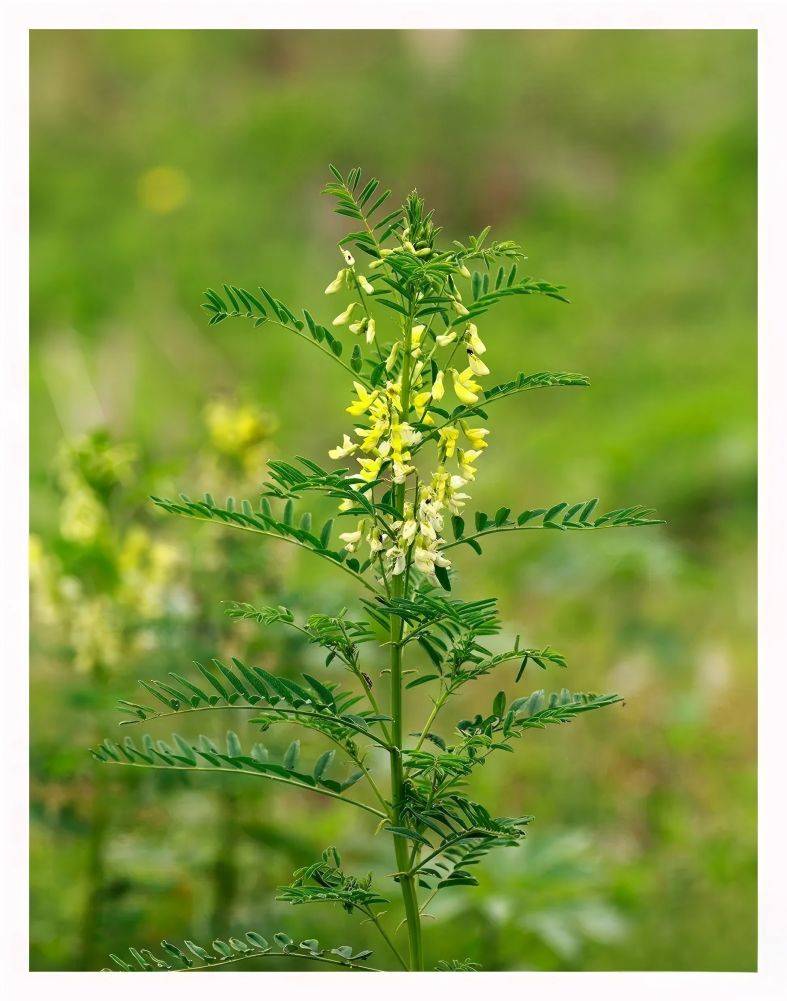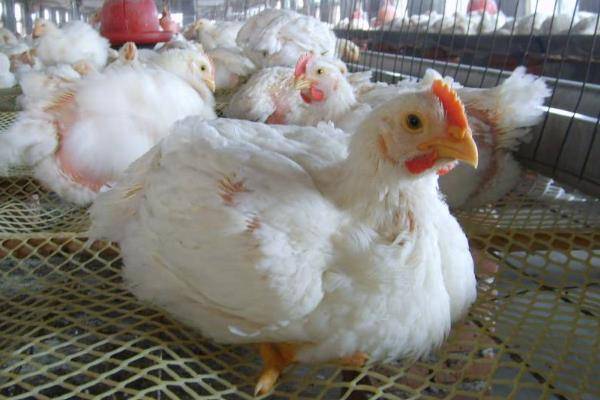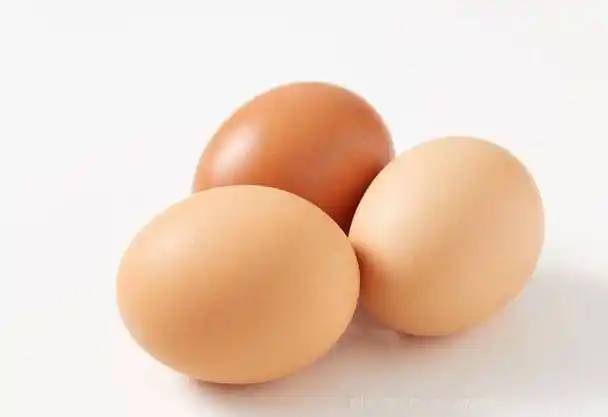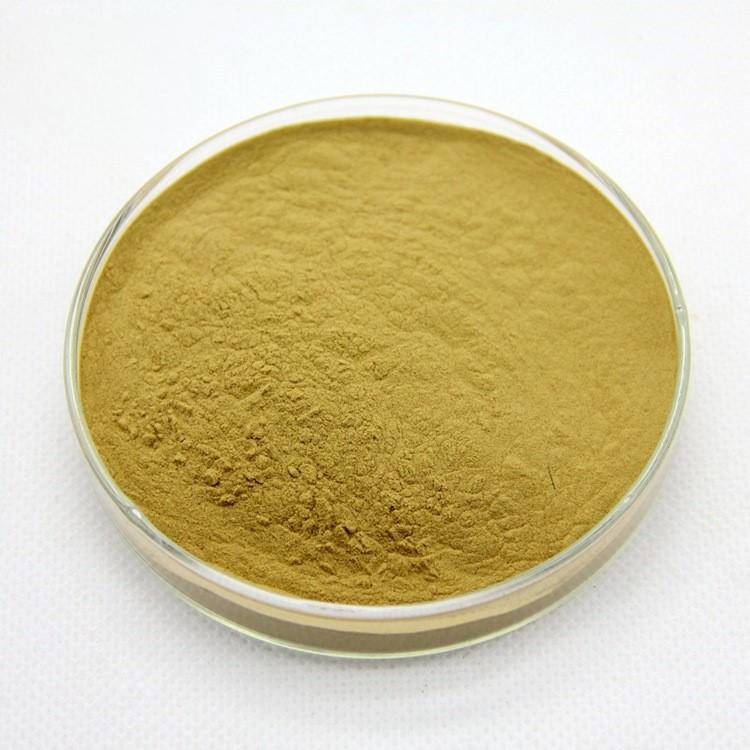What Are the Uses of Astragalus Extract Astragalus Polysaccharides?
Astragalus, also known as Mian Huangqi (绵黄芪) and Mianqi (绵芪), is mainly found in the northwestern, northeastern and northern regions of China. Astragalus is the dried root of Astragalus membranaceus or Astragalus mongoliae of the legume family, and it is a very commonly used Chinese herbal medicine, and its chemical constituents mainly include polysaccharides, flavonoids, saponins, 14 kinds of trace elements, and 22 kinds of amino acids, of which Astragalus polysaccharin (APS) is an important biologically active constituent of Astragalus, and it is used as a kind of green animal feed additive, which can enhance immunity, promote growth, improve animal performance, prevent epidemic health, and anti-stress.

As a green animal feed additive, it has the functions of enhancing immunity, promoting growth, improving animal performance, epidemic prevention and health care, and anti-stress, anti-radiation, anti-oxidation, anti-tumor, anti-virus and so on. In recent years, with the increasing research on astragalus polysaccharide and the deepening understanding of its biological functions, its application in animal production has become more and more extensive. In this paper, the biological functions of Astragali polysaccharides and their applications in animal production are summarized to explore the application prospects and development trend of Astragali polysaccharides in animal production, in order to accelerate the rational development and popularization of Astragali polysaccharides.
1 Physical and chemical properties of Astragalus polysaccharide
Astragalus polysaccharide is a kind of miscellaneous polysaccharide, mainly composed of fructose, glucose, rhamnose, arabinose and so on, which is extracted, concentrated and purified from the dried root of Astragalus membranaceus or Astragalus mongolia. The melting point of Astragalus polysaccharide is higher than 200 ℃, which is the main active ingredient of Chinese medicine Astragalus, and it is a neutral polysaccharide soluble in water.
2 Astragalus polysaccharide biological function
2.1 Immune enhancer
Astragali polysaccharide can improve the humoral immunity function and non-allergic immunity function of livestock and poultry, and at the same time can increase the number of natural killer cells, cytotoxic T cells and helper T cells in the body of livestock and poultry, so as to improve the immunity of livestock and poultry infected with viruses. In the process of actual animal production, Astragali polysaccharide can also be used as an immune enhancer, so that the protection of bacterial vaccine on livestock and poultry greatly improved, and enhance the ability of livestock and poultry to resist diseases, the immune effect is very significant. Astragali polysaccharide was used with chicken IBD freeze-dried vaccine, NDIV vaccine, NDI vaccine and ND oil emulsion vaccine in different ways, such as subcutaneous injection, intramuscular injection, nose-dotting and eye-dotting, etc., which could make the antibody potency of chicken IBD and ND significantly higher than that of the control group without using astragali polysaccharide at different dosages of astragali polysaccharide, different days of age and the same days of age, which demonstrated the obvious immune-enhancing effect of astragali polysaccharide. This shows that astragalus polysaccharide has obvious immune-enhancing effect. Astragalus polysaccharide can increase the antibody potency of Asia Ⅰ type foot-and-mouth disease, O type foot-and-mouth disease, prolong the protection period of O type foot-and-mouth disease and Asia Ⅰ type foot-and-mouth disease antibody potency, so as to strengthen the protection level of foot-and-mouth disease vaccine.
2.2 Improve the intestinal function of livestock and poultry
Intestinal tract is an important place for animal body to digest and absorb nutrients, and the microflora in the intestinal tract and the morphology and structure of the small intestine are two important indexes to measure the function of the intestinal tract. Astragali polysaccharide, as a feed additive, can effectively promote the proliferation of beneficial bacteria, inhibit the growth of harmful bacteria, play an important role in regulating the microflora structure of the gastrointestinal tract of livestock and poultry, improve and enhance the micro-ecological balance of livestock and poultry intestinal tract, and reduce the morbidity and stress. Meanwhile, Astragalus polysaccharide can obviously improve the morphology and structure of intestinal tract, improve the digestion and absorption function of intestinal tract, increase the utilization rate of feed and reduce the waste.
When feeding piglets, adding 2.0 g/kg and 1.0 g/kg of astragalus polysaccharide to feed can reduce the diarrhea rate of weaned piglets from 0.76% to 0.51% and 0.70% respectively, which indicates that astragalus polysaccharide can obviously improve the intestinal function of piglets. When 0.6% and 0.3% of Astragalus polysaccharide was added to the basal diet of 1-day-old broiler chicks and fed continuously for 56 days, the growth performance of broiler chicks was significantly improved, the body weight of broiler chicks in the test group was significantly higher than that in the control group, and the counts of Salmonella and Escherichia coli in the cecum were significantly lower than those in the control group, while the counts of Bifidobacterium and Lactobacillus were significantly higher than those in the control group. It can be seen that the addition of Astragalus polysaccharide to the diet can significantly improve the growth performance of the three yellow chickens and optimize the intestinal microbiota, of which the effect of adding 0.6% Astragalus polysaccharide is the most significant.
2.3 Improve the growth performance of livestock and poultry
Astragalus polysaccharide contains trace elements, vitamins, amino acids and other nutrients and unknown growth factors. Adding Astragali polysaccharide to feed can effectively reduce blood sugar and blood lipids, improve the apparent digestibility of nutrients in feed, promote the deposition of sugar, fat and the production of total serum protein, thus improving the utilization rate of feed, improving the growth and development of livestock and poultry and their reproduction performance, improving the yield and quality of meat, eggs and milk, and increasing the economic benefits of livestock and poultry breeding. Adding 1,000 mg/kg and 500 mg/kg of Astragalus polysaccharide to the diet of yellow-feathered meat chickens for 42 days, the slaughtering performance and muscle quality of broilers were significantly improved, and the effect of adding 1,000 mg/kg of Astragalus polysaccharide was the most significant.
2.4 Enhance the immunity of livestock and poultry
The increase of immune organ index is a manifestation of the enhancement of immunity of livestock and poultry, and Astragali polysaccharide can enhance the specific immunity and non-specific immunity of livestock and poultry, and at the same time, it can increase the number of natural killer cells, cytotoxic T cells and helper T cells of livestock and poultry, which can improve the immunity of livestock and poultry infected with epidemic diseases.
The 8-day-old green-footed hens were injected subcutaneously with Astragali polysaccharide, levamisole hydrochloride, different dosages of Chinese compound polysaccharide (cCHMPS) and saline for 7 days, and the different dosages of cCHMPS and Astragali polysaccharide could promote the proliferation of peripheral blood T and B lymphocytes, the concentration of antibody against Newcastle Disease Virus was significantly increased, and the level of humoral immunity and cellular immunity was strengthened.
2.5 Improve the quality of animal products
Astragalus polysaccharide has antiseptic, anti-mold, antibacterial and health care effects. Adding the gum with Astragali polysaccharide as the main component into dairy products can prolong their preservation period, improve the consistency and quality of dairy products, and improve the taste and texture of dairy products, which is a natural food additive with excellent preservation, freshness and health effects.
Astragali polysaccharide can increase the activity of antioxidant enzymes in poultry, prevent the oxidation of lutein and increase the accumulation of pigment, thus improving the color of egg yolk. Astragali polysaccharide can lower the blood lipid level of poultry, reduce fat deposition, help the normal secretion of eggshell glands, increase calcium secretion, and thus improve the quality of eggshells. Astragali polysaccharide also has a good effect on the muscle quality of animals. Adding Astragali polysaccharide to the diet can increase the apparent digestibility of crude fat and crude egg white in laying hens, and promote the production of egg yolk and egg white in eggs, which is conducive to increasing the weight of eggs. After adding Astragalus polysaccharide to the feed for commercial laying hens, the color of egg yolks was significantly improved, and there was a tendency to increase the thickness of egg shell and Hutchinson's unit.

2.6 Anti-bacterial and viral effects
Astragali polysaccharide can inhibit and kill bacteria by mobilizing the immune system of livestock and poultry, and eliminate their toxic products, so as to play the role of antibacterial and bactericidal. Astragali polysaccharide can also combine and interfere with many kinds of viruses to inhibit the reproduction of viruses, and can also enhance the phagocytosis ability of macrophages to maintain the health of livestock and poultry.
Research has shown that Astragalus polysaccharide APS can prevent the infection of porcine circovirus (PCV), the principle of which is that Astragalus polysaccharide APS can reduce the oxidative stress of the organism and hinder the DNA replication process of porcine circovirus 2 (PCV2), and at the same time, the level of reactive oxygen species (ROS), the number of infected cells, and the content of MDA were significantly reduced (P<0.05). Astragalus polysaccharide can prevent and control many viral diseases, such as avian influenza and chicken Marek's disease, and can significantly improve the quality of eggshells and egg production rate of poultry.
3 Application in animal production
3.1 Feed additives
Since astragalus polysaccharide has no toxic side effects and contains vitamins, amino acids, trace elements and other nutrients and unknown growth factors, it can significantly increase the growth rate and disease resistance of livestock and poultry, and improve the quality and yield of meat, eggs and milk, so astragalus polysaccharide is often used as a feed additive in the process of animal production. To 1-week-old chicks fed with 1% astragalus dry powder, the chicks' digestive ability was enhanced, appetite was very strong, disease resistance was also improved, and the survival rate reached 100%. Adding Astragalus compound herbal medicine preparation to the diet of laying hens in summer, the feed remuneration rate and egg production rate were improved, and the quality and quality of eggs were also greatly improved.
Egg Enhancement 2 and Egg Enhancement 1 were made with Astragalus polysaccharide as the main ingredient, supplemented by other Chinese herbs, which increased the egg production rate by 14.39% and 7.14% respectively, and the feed remuneration rate by 28.76% and 15.05% respectively. Add 2%, 1%, 0.5%, 0.1% of Astragalus polysaccharide into the feed of 1-day-old Aveeno broiler chickens, and the test results show that adding Astragalus polysaccharide into the feed can reduce the ratio of feed to meat, increase the average daily feed intake, average daily weight gain, and have a very obvious growth promotion effect, but adding 1% of Astragalus polysaccharide is the most effective.

3.2 Prevention and control of infectious diseases of livestock and poultry
Astragali polysaccharide can induce endogenous interferon in livestock and poultry, make the cells produce anti-virus protein, inhibit the synthesis and reproduction of viral proteins to a certain extent, and play a significant role in resisting viral infections. In a pig farm in Beijing, pigs suffering from porcine circovirus disease were treated with astragalus polysaccharide, and the cure rate could reach 81.43%. Treatment of porcine circovirus, disease astragalus polysaccharide is better than the double yellow lotus and ribavirin and other drugs, especially in the early stage of the disease, the therapeutic effect is more significant.
For the early weaning calf diarrhea, with astragalus polysaccharide were carried out prevention test and treatment test. The results of prevention test showed that the diarrhea rate of Astragali polysaccharide group was 5.5% and the survival rate was 94.2%, which was 5.5% lower than that of antibiotic group and 7.2% higher than that of antibiotic group; the results of treatment test showed that the cure rate of Astragali polysaccharide group was 94.4%, which was 12.6% higher than that of antibiotic group. Astragalus polysaccharide has therapeutic effect on diarrhea of early weaned calves, and the effect is obviously better than that of antibiotic group.
3.3 Immune enhancer
Astragalus polysaccharide not only has the function of enhancing the immunity of livestock and poultry, but also has the effect of promoting the immunization potency of vaccine and prolonging the immunization period greatly. In animal husbandry production, Astragali polysaccharide and vaccine can be applied together to give full play to its immunity-boosting effect, shorten the time for the vaccine to reach the highest level of potency, and at the same time, the group potency level can be neatly adjusted. Broilers at 2 and 6 weeks of age were immunized with 0.5 mL/bird of inactivated avian influenza vaccine by intramuscular injection for the first and second immunization respectively, and 1 mL/bird of Astragali polysaccharide was given to broilers orally on a daily basis. The results showed that broilers had a significant increase in weight, bursa and splenic index, and the avian influenza haemagglutination-inhibiting antibody potency was significantly elevated after the second immunization. Astragali polysaccharide could increase the content of various cytokines and the antibody level of swine fever to different degrees, and enhance the immunization effect of swine fever vaccine in weaned piglets. These studies provide a reference basis for the industrial application and development of astragalus polysaccharide in piglet breeding.
4 Problems
There are many ways to extract astragalus polysaccharide, and the contents and compositions of astragalus polysaccharides extracted from different varieties and different extraction methods are not the same, and their functions are also different. With the different ages, growth stages and species of animals, the functions and structures of digestive tracts are different, and the effects of adding Astragali polysaccharides to diets on animals are also very different. The immune-enhancing effect of astragalus polysaccharide cannot be separated from the use of vaccine, and the immune-protecting effect of using astragalus polysaccharide alone to non-immune animals will be very poor. The antagonistic and synergistic effects of astragalus polysaccharides with preventive drugs or animal feed additives need to be further studied.
The optimal dosage of Astragali polysaccharides for different animals and different developmental stages is not the same, and the dosage and its functional effect are not completely proportional to each other. The optimal way and amount of Astragali polysaccharides to be added to different kinds of animals in different physiological states are not clear yet. Due to the big difference in environmental conditions between laboratory and production practice, the actual results may differ when the results of laboratory research are applied to production practice. The development of practical strategies for the use of astragalus polysaccharides in production practice requires more research on the application of astragalus polysaccharides in production practice. How to standardize the use of astragalus polysaccharide, how to identify its authenticity and how to establish a uniform standard for the optimal amount of additives are all urgent issues that need to be solved now.
5 Summary
With the continuous expansion of the scale of development of China's aquaculture industry and the continuous improvement of the living standard of the residents, the demand for new feed additives and immune enhancers that are green, safe, efficient, non-residual and non-polluting has been increasing, and the development and promotion of alternatives to antibiotics for feed use has become a problem that must be faced in the course of the high-speed development of animal husbandry industry.
Astragalus polysaccharide, as an extract of natural herbs, can effectively solve the potential harm of drug residues on health and the problem of antibiotic resistance, and astragalus polysaccharide has the ability to enhance immunity, antioxidant, antiviral, anti-tumor, anti-aging and other functions, which can effectively prevent the occurrence of animal diseases. However, there are still a series of problems that need to be solved in the research and application of astragalus polysaccharide. It is believed that with the deepening of scientific research on the mechanism and biological effects of Astragalus polysaccharide, it will have a very broad development and application prospects in animal husbandry production, which is of great significance to the sustainable and healthy development of green ecological animal husbandry in China.
-
Prev
Is Astragalus Extract Efficient in Animal Feeding?
-
Next
What Is the Use of Astragalus Polysaccharide Extract?


 English
English French
French Spanish
Spanish Russian
Russian Korean
Korean Japanese
Japanese




